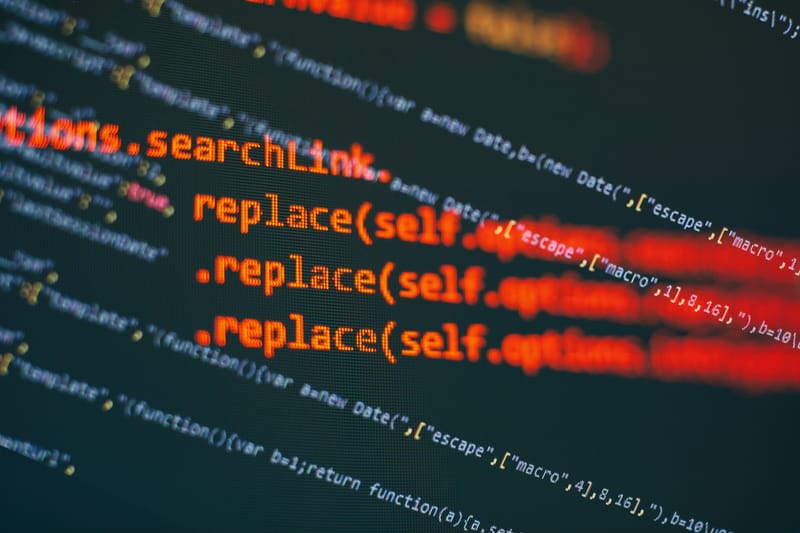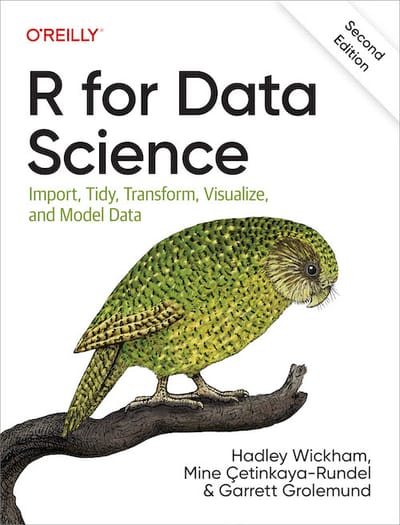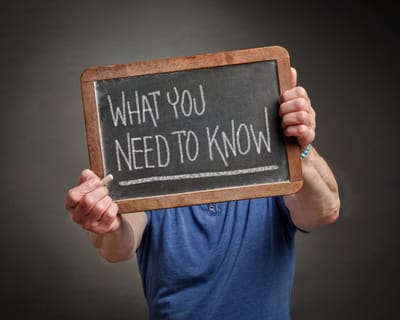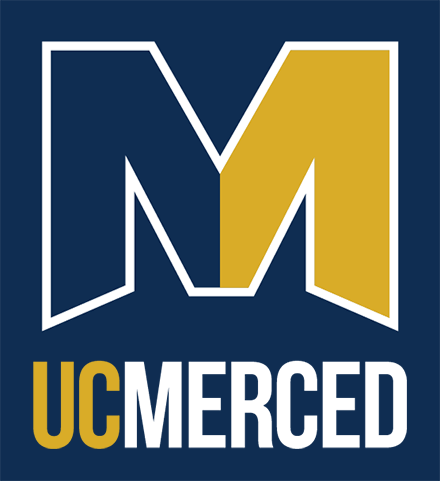Welcome to UC Merced Cognitive & Information Sciences Graduate Student Group
Exploring Minds, Sharing Knowledge
Contribute
Simply submit your contributions through easy-to-use forms, and watch them become part of a growing, dynamic resource.

Conferences & Symposiums
A list of events that may be of interest to CIS graduate students for presenting research, connecting with peers, or industry networking.
Learn More
Publications Hub
This page showcases the latest research papers published by our students and faculty. Explore a diverse range of work that reflects the innovative and interdisciplinary nature of our department.
Learn More
Seminal Reads: Faculty Recommendations
This page is a curated collection of papers recommended by our faculty. While not part of any class or required reading, these selections are shared for those looking to deepen their understanding and expand their academic horizons. Dive in, explore, and discover the texts that are deemed worthy.
Learn MoreEvents
Past Events
| Title | Date | Day | Location |
|---|---|---|---|
| CIS Supper Club | 21 Nov 2024 | Thursday | 731 E Yosemite Ave ste c, Merced, CA 95340 |
| Brainwaves & Brews | 15 Nov 2024 | Friday | 315 W Main St Merced, CA 95340 |
| Brainwaves & Brews | 08 Nov 2024 | Friday | 315 W Main St Merced, CA 95340 |
| Brainwaves & Brews | 01 Nov 2024 | Friday | 315 W Main St Merced, CA 95340 |
| Brainwaves & Brews | 25 Oct 2024 | Friday | 315 W Main St Merced, CA 95340 |
| CIS Supper Club | 24 Oct 2024 | Thursday | 731 E Yosemite Ave ste c, Merced, CA 95340 |
| Brainwaves & Brews | 18 Oct 2024 | Friday | 315 W Main St Merced, CA 95340 |
| Brainwaves & Brews | 11 Oct 2024 | Friday | 315 W Main St Merced, CA 95340 |
Agent Based Models
BOX Links
Helpful Materials Hosted on the UCM Box App
Complex Systems

Think Complexity
Complexity science is an interdisciplinary field — at the intersection of mathematics, computer science and natural science — that focuses on complex systems, which are systems with many interacting components. One of the core tools of complexity science is discrete models, including networks and graphs, cellular automatons, and agent-based simulations. These tools are useful in the natural and social sciences, and sometimes in arts and humanities.
Learn More
PyCX
The PyCX project aims to develop an online repository of simple, crude, yet easy-to-understand Python sample codes for dynamic complex systems modeling and simulation, including iterative maps, ordinary and partial differential equations, cellular automata, network analysis, dynamical networks, and agent-based models. You can run, read and modify any of its codes to learn the basics of complex systems modeling and simulation in Python.
Learn MoreEEG
EEGLAB
Explore EEGLAB, the powerful open-source MATLAB toolbox developed by UC San Diego's Swartz Center for Computational Neuroscience.
Learn MoreERP Lab
Open-source MATLAB toolbox tailored for advanced event-related potential (ERP) data analysis. Developed by, and for the ERP research community, ERPLAB builds upon the functionalities of EEGLAB, offering specialized tools for preprocessing, artifact detection, waveform visualization, and statistical analysis.
Learn MoreFieldTrip
Discover FieldTrip, the powerful open-source MATLAB toolbox tailored for analyzing MEG, EEG, iEEG, and other electrophysiological data.
Learn MoreMNE-Python
MEG and EEG data analysis with MNE-Python! This in-depth tutorial provides an overview of the powerful tools and workflows available in MNE-Python for processing neurophysiological data. Learn how to import, preprocess, visualize, and analyze your MEG/EEG datasets using cutting-edge techniques.
Learn MoreOpen Science
NeroSynth
Neurosynth is an open-source platform that uses text mining and meta-analysis of fMRI data to create dynamic brain maps.
Learn MoreNeuroValut
NeuroVault is an open repository where researchers can store and share unthresholded statistical maps, parcellations, and atlases of the brain.
Learn MoreThe Healthy Brain Network
Provides open-access data on brain development in children and adolescents, including cognitive assessments and neuroimaging data, including EEG.
Learn MoreOpenCog
Open-source software framework for artificial intelligence research, aiming to create systems with human-like intelligence.
Learn MoreOpenNeuro
A free and open platform for sharing MRI, MEG, EEG, iEEG, and ECoG data, adhering to the Brain Imaging Data Structure (BIDS) standard.
Learn MoreOpen Science Framework
OSF is an open-source platform supporting researchers in project management, data sharing, and collaboration, promoting open science practices.
Learn MoreData Dryad
An open-source, curated resource that makes the data underlying scientific publications discoverable and reusable. It's ideal for sharing datasets associated with published articles.
Learn MoreData Verse
An open-source web application to share, preserve, cite, explore, and analyze research data. It allows for creating and managing multiple data repositories, making it suitable for collaborative projects.
Learn MoreThe Turning Way
A handbook that provides guidance on reproducible research practices, project design, collaboration, version control, and data sharing—all crucial skills for cognitive science research.
Learn MoreMetaCognitive
An initiative focused on promoting open science practices within cognitive science, offering resources, workshops, and a community for support.
Learn MoreOpen Brain Consent
Provides templates and guidelines for obtaining informed consent that allows for open sharing of neuroimaging data, promoting ethical open science practices.
Learn MorePhilosophy & CogSci
Stanford Encyclopedia of Philosophy
Organizes scholars from around the world in philosophy and related disciplines to create and maintain an up-to-date reference work.
PhilPapers
A comprehensive index and bibliography of philosophy maintained by the community of philosophers. It includes thousands of academic papers and books in philosophy of cognitive science, many of which are freely available for download.
CogPrints
CogPrints is an electronic archive for papers in psychology, neuroscience, linguistics, computer science, philosophy, and biology, all areas pertinent to the study of cognition.
PhilSci-Archive
An electronic archive for preprints in the philosophy of science, including philosophy of cognitive science and mind.
The Brains Blog
A group blog focused on philosophy of mind, psychology, and cognitive science.
OpenCourseWare – Brain and Cognitive Sciences
MIT provides free access to course materials on topics intersecting philosophy and cognitive science, including courses on cognitive neuroscience and philosophy of mind.
Society for Philosophy and Psychology
The purpose of the SPP is to promote interaction between philosophers, psychologists and other cognitive scientists on issues of common concern.
CogNet (MIT Press)
MIT CogNet offers the complete text of major cognitive science reference works published by the MIT Press, including several foundational works in the field.
Statistics in R

R for Data Science (2e) *Free*
Written by the creator of the Tidyverse R Universe, "R for Data Science (2e)" is a comprehensive, free online resource for learning how to do data science using R. This book covers all the essential skills: from getting data into R, transforming it into the right structure, to visualizing and exploring it. You'll master best practices in data wrangling, plotting, and even learn about the grammar of graphics, literate programming, and reproducible research—all to streamline your workflow and facilitate discovery. This freely accessible book is licensed under CC BY-NC-ND 3.0, and if you find it valuable, consider supporting the critically endangered kākāpō parrot, featured on the cover, by donating to Kākāpō Recovery.
Read More
Comprehensive Links and resources
This collaborative guide offers a comprehensive resource for working with R, RMarkdown, and Quarto, providing users with best practices, tutorials, and tips for data manipulation, visualization, and reproducibility. Developed by Gilad Feldman at the University of Hong Kong, it invites contributions from the community to enhance its content. The guide is packed with useful information on R packages, statistical methods, AI tools, and more, making it ideal for anyone looking to deepen their skills in R for data science or academic work.
Read More
R for Graduate Students
This free online book by Wendy Huynh, a PhD student in behavioral neuroscience, is a user-friendly guide for beginners in R programming. Starting as a series of assignments to teach a fellow graduate student, it quickly expanded into a comprehensive resource tailored to those in the sciences who want to learn R from scratch. With relatable examples and step-by-step explanations, this book is perfect for anyone struggling to find a practical, beginner-focused guide to R that is relevant to their field. Wendy’s passion for teaching shines through, offering readers an approachable path to mastering data management in R.
Read More
YaRrr! The Pirate’s Guide to R
Set sail on your R programming journey with "YaRrr! The Pirate’s Guide to R"—a humorous, step-by-step resource perfect for absolute beginners. This book breaks down R's complexities in an easy-to-understand way, using entertaining examples and playful explanations to keep you engaged. With a light-hearted tone, it guides you through everything from the basics of data manipulation to creating visualizations. The book is a few years old, but if you're overwhelmed by the R for Data Science book and looking for a fun and accessible way to start without taking the wind out of your sails, this guide is sure to help you navigate the seas of data science with a smile!
Read More
R Tutorials & Resources for nonlinear analyses
Tools and tutorials located in Github to help with recurrence quantification analysis (RQA), cross-recurrence quantification analysis (CRQA), and detrended fluctuation analysis (DFA).
Read More
Anova in R
This thread by @WeAreRLadies provides a practical and concise guide to performing ANOVA in R, addressing the most frequent questions clients ask about running linear models, hypothesis testing, and extracting means. The author covers key concepts like formula notation, the limitations of certain functions, and provides recommendations for handling different types of data, including balanced and unbalanced datasets. This resource is a great starting point for anyone looking to navigate ANOVA in R effectively.
Read More
Linear models and linear mixed effects models in R with linguistic applications
This tutorial by Bodo Winter provides a conceptual introduction to linear models and linear mixed-effects models, focusing on their application within R for linguistic data analysis. With practical examples and hands-on exercises, the guide is designed to quickly build your understanding of these powerful statistical tools. Whether or not you have a background in linguistics, this tutorial will help you start analyzing your data and understand key concepts such as variance explained, significance, and model coefficients. Dive in and boost your knowledge in just a couple of hours!
Read MoreUCM Links

Official CIS Site
This CIS GSG site that you are currently on, is meant to accompany the CIS program's official website, at cogsci.ucmerced.edu. Visit the official website to learn more about current students and faculty and for guidance regarding program requirements. Although we've tried to include up to date information, always keep in contact with your committee, UCM Graduate Division, or ask your fellow grad students if you need any help navigating the paperwork side of the PhD process.
Learn MoreGraduate Division Sites
Links to UC Merced Graduate Division's General Site & Facebook page. Also there is a link to the Graduate Division's Current Students page. There, you'll find essential information on academic policies, important deadlines, funding opportunities, and professional development programs. Whether you need guidance on thesis submission, access to forms, or support services, this hub is designed to help you navigate and thrive throughout your graduate journey.
Learn More
Housing Options
Looking for housing options near UC Merced? The Off-Campus Housing Services page provides resources to help students find accommodations beyond the campus grounds. Whether you're searching for rental listings, roommate connections, or housing tips, this site is your go-to resource for securing the right place to live while studying at UC Merced.
Learn MoreUC Merced FB Groups
Looking for textbooks, housing, or social events at UC Merced? These Facebook groups provide a platform to connect with fellow students. You can post classifieds for items like books or cars, find housing opportunities, or discover social events for graduate students. The groups also offer a way to RSVP for activities and find roommates.
Learn More
UC Merced Available Software
Explore the UC Merced Software List to discover a wide array of tools available for students, faculty, and staff. From statistical software to productivity suites, this resource offers details on what’s accessible through the university's licenses. Notably, SPSS—perfect for all your statistical analysis needs—is available on lab computers through the university's enterprise license, providing you access at your favorite price!
Learn MoreGSG
2024-2025 Graduate Student Group Executive Committee Officers
Shervin Nosrati
ChairAs chair, Shervin is our fearless timekeeper - ensuring meetings are productive and punctual. His research interests focus on metaphor, gesture, and embodied cognition, and he is affiliated with the Marghetis Lab. He has contributed to research on how spatial metaphors are used to understand complex concepts, such as time-travel narratives, by analyzing how people use gestures to represent time during storytelling.
Adam Holm
Professional Development OfficerAdam has planned and will coordinate several professional development workshops this year, stay tuned for the topics and dates. His research focuses on the perception of errors and the role of uncertainty in consciousness. He is affiliated with the Backer and Shahin labs.
Soran Malaie
Social & Community OfficerSoran's duty is to bring the party to life, and is often the life of the party. His research interests include embodied cognition, dynamical systems theory, ecological psychology, and phenomenology. He is affiliated with both the Marghetis and Spivey labs.
Melissa Almeida
Media Communications OfficerMelissa is the resident techie and has taken on the reconceptualization of the website. Her research interests include embodied cognition, AR/VR technology, and human-computer interaction in pedagogy. She is affiliated with the Aguirre-Munoz lab.
Liantao "Tony" Shan
GSA DelegateTony is the liaison between the Graduate Student Association and the CIS graduate students. He will dutifully take your concerns to the GSA - who will present them to the powers that be. His research focuses on bilingualism and cognition, bilingualism in education, language and thought, and metaphor. He is affiliated with the Aguirre-Munoz lab
